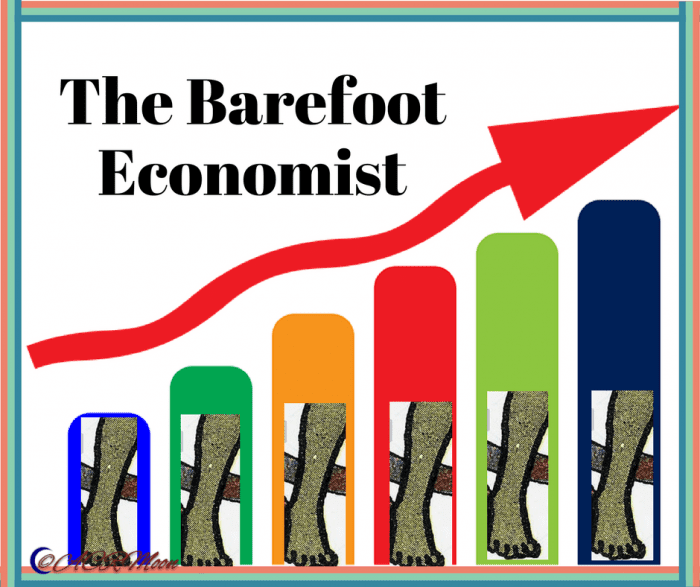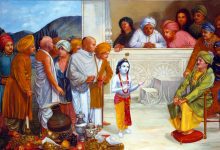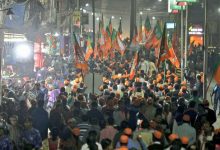The funding of political parties in India is kept a largely secret affair, thus, the chances of the influence of policy or rules by fund giver is a big probability. Corruption also happens because of poorly framed regulations, rules or policies. Under such circumstances, to get a job done in the government offices, the private person may offer bribes, so that informal rules can replace formal rules, and the private job can be done with speed. Tarun explains the genesis of corruption, in the weekly column, exclusively for Different Truths.
One of my cousins came to know that I write on economic issues. He suggested that I should take corruption as a topic, as that is a very important ingredient now in the national discourse.
What could I write? Since I write only on economics, not on social or moral issues, how would corruption fit into the scene? Still, I had that desire to write on the topic.
Then, one fine day, I happened to read on electoral funding. And then I knew, how corruption would fit into my writing. So, my take on corruption more from an economic angle, not as a social evil or political morass.
The expenditure of running a political party, and contesting elections in India, has to be seen to be  believed. India is a big country. A national-level political party needs constant funds for day to day running, as well as for fighting the frequent elections. It is an open secret that the expenditure limit set by the election commission to contest elections in India is always violated by a huge amount by all the parties and all the candidates. To finance that election, every party and candidate needs funds. And those funds come tagged with certain strings to benefit the entity or person giving those funds. Since the funding of political parties in India is kept a largely secret affair, and no transparency is there, the chances of the influence of policy or rules by fund giver is a big probability.
believed. India is a big country. A national-level political party needs constant funds for day to day running, as well as for fighting the frequent elections. It is an open secret that the expenditure limit set by the election commission to contest elections in India is always violated by a huge amount by all the parties and all the candidates. To finance that election, every party and candidate needs funds. And those funds come tagged with certain strings to benefit the entity or person giving those funds. Since the funding of political parties in India is kept a largely secret affair, and no transparency is there, the chances of the influence of policy or rules by fund giver is a big probability.
Corruption also happens because of poorly framed regulations, rules or policies. Under such circumstances, to get a job done in the government offices, the private person may offer bribes, so that informal rules can replace formal rules, and the private job can be done with speed.
In fact, the speed and ease of getting things done in the government sector are often cited as a point in favour of corruption, as far as microeconomics, or economics of an individual person is concerned. Even in large-scale private sector units, a certain amount of corruption can be found, as project costs are inflated in the books, to book expenditure by the management or other offices, to make a quick buck.
However, as students of economics know, anything beneficial in the short run, may be detrimental in the long run. So, if an individual is able to get his job done by bribing, the officialdom will begin to frame rules to institutionalise bribes. This often happened with income tax refunds a few years back, when the correspondent would hand over the refund cheque only after getting a certain percentage of the amount. There would be many such examples. Ultimately, the society would suffer as a whole, as rates of bribes would go on increasing.
The dynamics of corruption in the public sector can be depicted in a simple model. The opportunity for corruption is a function of the size of rents under a public officials control, the discretion that official has in allocating those rents, and the accountability that official faces for his or her decisions. Thus, corruption reduction involves not just a punitive framework, but also a preventive framework in terms of the decision-making process itself.
Since a democratic government is formed for five years, the policy framework which reduces the corruption has not only to be formed but also implemented in those five years itself. While five years is long enough time, yet, the effects of that framework would start showing results towards the fag end of the government tenure, even if the government started those initiatives towards the beginning of its tenure. Hence, the motivation to reduce that corruption, and hence reap electoral benefits reduce. Also, the frequent elections entail more expenditure to contest those elections.
Although, the increase in the number of political parties is providing good choice to the public, and a  healthy competition among the political parties for governance. This in itself improves governance standards. So, democracy may be said to work like a double-edged sword. It provides for an expensive form of governance, but at the same time, enhances the power of the masses to give themselves their favourite option to govern themselves, every five years.
healthy competition among the political parties for governance. This in itself improves governance standards. So, democracy may be said to work like a double-edged sword. It provides for an expensive form of governance, but at the same time, enhances the power of the masses to give themselves their favourite option to govern themselves, every five years.
In autocratic forms of government, there is more efficient both in terms of time and money when executing infrastructure and other projects. However, the policy framework can be convoluted too, thus giving rise to corruption. Also, the risk remains of the power being concentrated in a single or a few hands. And going by the old adage- “Absolute power corrupts absolutely”-there is a high risk of concentrated power being abused to the detriment of the public at large, as we have seen in a countless number of cases in world history, or even in the contemporary world.
That means while time and money both can be saved in autocracy as compared to democracy, the inherent risks of autocracy make democracy more desirable. But the challenge remains to make democracy less costly while strengthening democratic institutions.
This can be done by reducing the frequency of elections. In India, elections are held every five years. If we hold elections every six years instead, we not only save money by holding and contesting elections but also give more time to the incumbent government to make its policies show the result.
The institutions like police, the judiciary should be reformed too. This will ensure that as the government’s tenure is increased, it is more oriented towards good governance, and not lax or complacent in governance.
The arbitrariness of rulers should be replaced by simple and practicable rules. The governance should strictly be by rules, and those rules should strictly be enforced. This will go a long way in reducing corruption, whether in democracy, or autocracy.
It is not shown conclusively that democracy essentially is more corrupt. There are partial democracies like Singapore that are considered the least corrupt in the world.
The trick of the trade is to keep on trying to reform the institutions and processes. And whenever we get a better option, we shall become less corrupt. But try we must. And eventually, we will hit upon a homegrown formula for ourselves, which suits us best and unleashes the true potential of us Indians.
©Tarun Gupta
Photos from the Internet
#Indians #Corrupt #Democracy #Money #Policies #Economics #Bribes #Regualtions #TrickOfTheTrain #BarefootEconomist #DifferentTruths







 By
By
